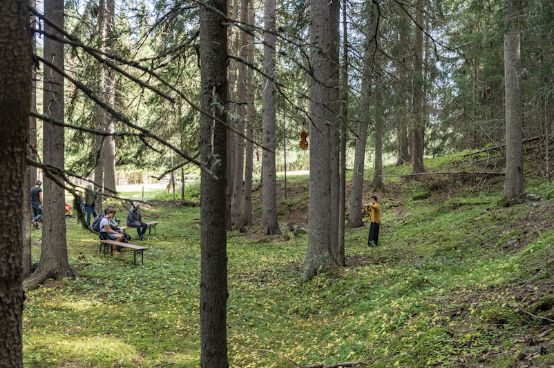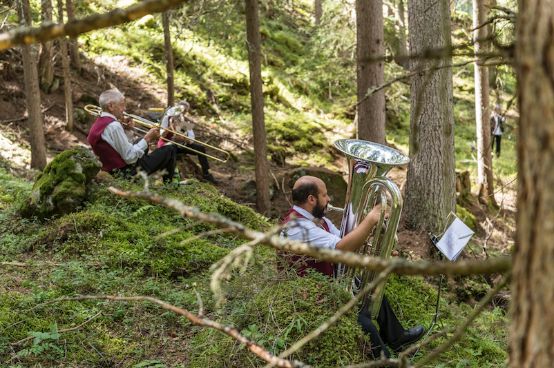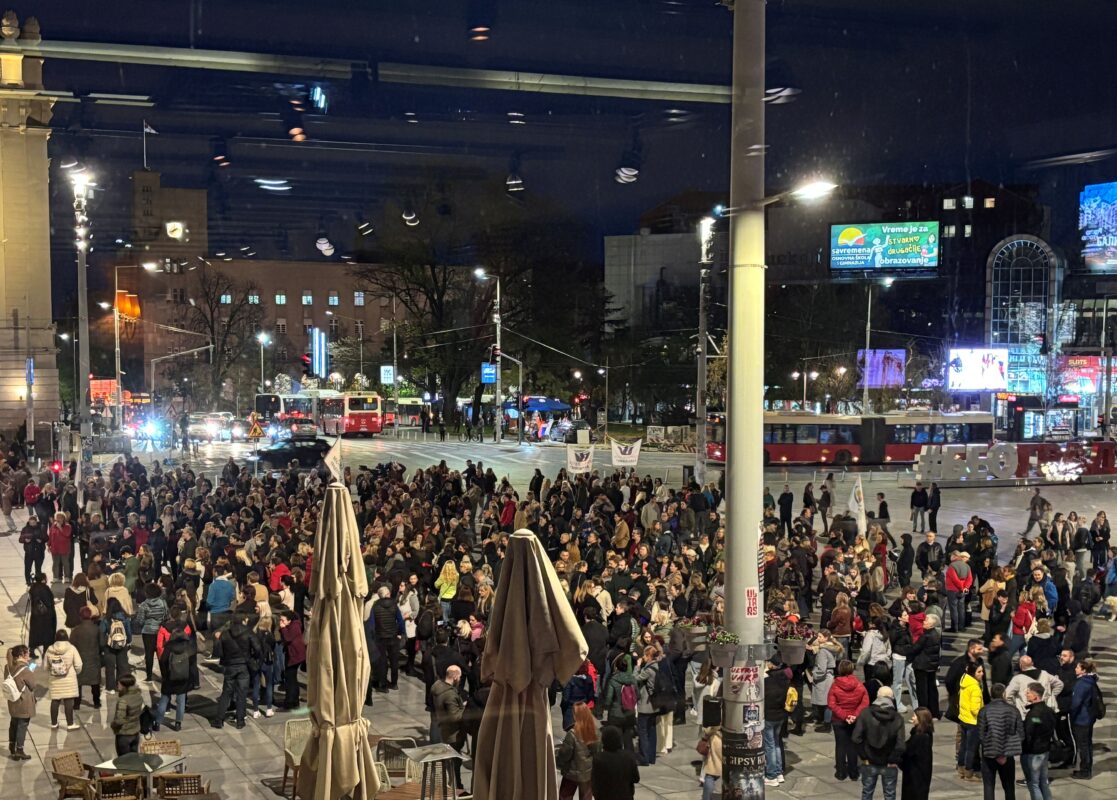Hinges to nature
The Rümlingen New Music Festival is not staying at home this time. A sound hike takes place in the Engadin. Thoughts wander around the contact with the earth.

Happening, environment or simply outdoor music? It is no longer so easy to use these terms since people have been looking to cross boundaries and experiment with them. On the other hand, music has never been easy to reduce to a common denominator or even to a single point. It likes to elude us. Harmonic analyses only provide rudimentary impressions; adjectives commonly used in journalism are no more than approximations.
Anyone who visits the Rümlingen festival is bound to have some thoughts. This time there was another six-hour sound hike in the open air. Only it didn't start in Rümlingen and go to Sissach or Olten, but from little Lavin in the depths of eastern Switzerland: Scattered groups set off on their way to Sur d'Ardez. A constant companion along the way is the Inn, which rushes ostinato - and inspires festival directors and composers alike. On the banks of the river, the American Christian Wolff explores the sound of stones that he strikes against each other; at the next sound station, Jürg Kienberger and Peter Conradin Zumthor play on glasses filled with water by a stream. After such rather esoteric and anthroposophical sounds, the path leads into a stone tunnel. Fingal's Grotto from the Hebrides by Felix Mendelssohn Bartholdy briefly comes to mind. However, there is no orchestra in the cave-like tunnel, but a harpist whose subtly bowed or dabbed sounds come from the German composer Caspar Johannes Walter. "The water," says Walter, "is the hinge to nature." Drip sounds come from the loudspeakers surrounding the harp. They are processed, sounding at different pitches and rhythms. Despite the damp and cold, people like to linger a little longer in the dark - knowing full well that the sun will soon warm up again.
Continue on. Out of the tunnel, continue on the gravel path heading east. A sign reads "Carola Bauckholt: Double exposure". Looking to the right, we see a violinist standing somewhat lost among the trees. Hanging around her are other violins, from which - stimulated by so-called "transducers" - come bird calls. In view of her duplication of nature, Bauckholt had some scruples. Ultimately, however, such arrangements show that an "artistic-civilizational intervention" always sets different accents than "nature itself". Even if it is "only" through the fact that such an accomplished violinist as Akiko Sabine Ahrendt can imitate birds with incredible virtuosity in the highest regions of her instrument.
Inspired by Leta Semadeni
Of course, it is also the darker side of the concert hall that comes to mind between Lavin and Sur d'Ardez. The atmosphere between the sound stations is very informal. People talk about what they have heard, are inspired by the imposing high mountains or by sounds that reveal their subtle sides. Daniel Ott "hates it when the audience is suggested a freedom that they are not allowed to use". This time, the Swiss festival director and composer himself contributed a sound station called Chavorgia with. Wind instruments, primarily from Musica Concordia Ardez, play a few selected chords on a forest slope, while a duet with accordion and clarinet intones beautiful cantilenas. Ott was inspired by the structure of a poem by the Lavin-based writer Leta Semadeni. The total number of syllables in the short poem Chavorgia He transfers this to the large-scale form of his successful musical environment, which is perhaps more like outdoor music after all.
Beat Furrer also sets Leta Semadeni's poetry to music. In the small village church in Sur en d'Ardez, soprano Rinnat Moriah sings beguilingly beautifully, accompanied by the fantastic saxophonist Markus Weiss with both expressiveness and flexibility. Semadeni's natural mysticism develops incredible power, which unfolds well in the sparse church space. In mia vita da vuolp - In my life as a fox is the title of the poem in which the poet writes: "I didn't know my name, was only always there where my paw touched the earth." Now man is not a fox. But he can learn something from him - by simply strolling around, far away from concepts, far away from the constant question of why.
-

Wind players primarily from Musica Concordia Ardez in Daniel Ott's "Chavorgia"
Echo
The festival management announced that the 2019 edition is not quite over yet. On November 16 at 8 p.m., there will be an "echo" in the church in Rümlingen.








